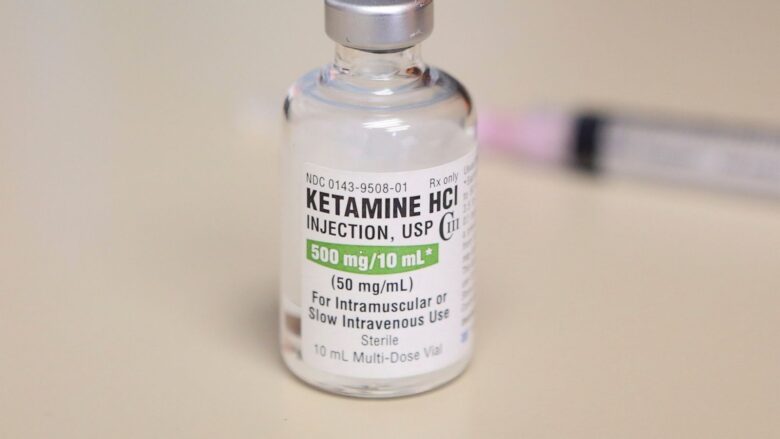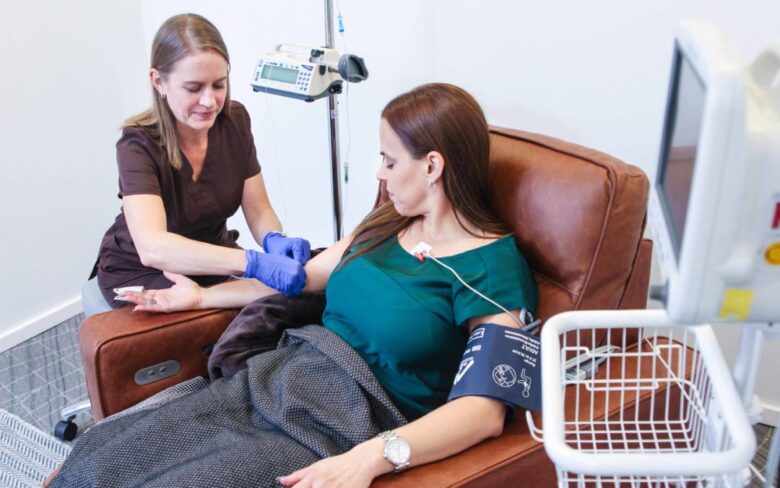Depression as an illness has been reported for centuries, plaguing the likes of Ernest Hemingway, Abraham Lincoln, and Georgia O’Keefe.
In 2024, there are many treatments available that can help those who have been diagnosed with depression, from talking therapy to prescription medications, which have a range of success based on the severity of the depression, the person who has the depression, and, of course, the person who provides the treatment,
There has been a trend emerging in the area of depression treatment in the last few years. The use of ketamine, a once popular anesthetic, to alleviate the symptoms of depression has
gained traction and has been providing very positive results.
So, if you have had enough of having that grey cloud following you around, you may have considered ketamine treatment. However, what must you know about it before booking an assessment? Here is a quick guide!
What is Ketamine?

As mentioned briefly before, ketamine was originally used as an anesthetic and was noted to have fewer side effects than other anesthetics that were available. Indeed, if you were given ketamine as part of an operation, you were at a lower risk of having hallucinations.
However, when it is used to help with depression by clinics like Daydream MD, it is used to induce a dissociative state via an IV infusion. It distorts perception and time and allows the person who is using the drug to feel disconnected from their body, thereby inducing a sense of calm.
Ketamine is usually best at treating depression when it is used via an IV drip. It can also be used as a nasal spray in between infusions should the person notice a return of their depressive symptoms.
Ketamine and Depression
At this point, you may be wondering how a drug that is linked to dissociation can help to treat depression.
Many people who suffer from depression do have a history of trauma, and, as such, by being in an induced dissociative state, they will likely feel safe enough to discuss what has happened to them. This helps with the processing of emotions and allows them to feel better in the long term. However, it is not all about dissociation.
Ketamine is a glutamate antagonist, meaning that once it reaches the blood-brain barrier, it ups the amount of glutamate created in the brain. Why is this important? Well, research has shown that those who have depression often have lowered levels of this neurochemical in their brains, and increasing it can help to minimize the symptoms of depression.
When it is given via an IV infusion, ketamine can also start to reduce the symptoms of depression in as little as 15 minutes, meaning there is no need to wait for that 2-6 week period to be over to start noticing the benefits of the treatment.
Ketamine-Assisted Psychotherapy (KAP)

Psychotherapy is an intense form of therapy that delves into troubling emotions and ideas, intending to improve thoughts, behaviors, and overall outlook on life.
As mentioned before, ketamine allows the person who is undertaking the treatment to feel separated from their bodies, which will usually allow them to feel safe enough to explore ideas and thoughts that may have been psychologically blocked off before. This is where ketamine-assisted psychotherapy, or KAP, comes into play as part of the treatment process.
Many clinics that offer ketamine infusions will offer psychotherapy as well, as in the trance-like state that comes with ketamine, a person is more likely to open up about past traumas and fears. The psychotherapist will then work with the person to challenge the ideas and talk them through, helping them come to terms with them more effectively and acceleratedly.
Benefits of This Treatment
When it comes to ketamine treatment, there are a lot of pros to undertaking the treatment. One of the most noted benefits is that it offers a break from the symptoms of depression quickly, with many patients noting an improvement in their depressive symptoms in as little as 10 minutes. This reduction in symptoms can last up to 6 weeks after the treatment is over, making it a long-lasting and impactful option for those who have treatment-resistant depression or severe major depression.
Next, ketamine treatment does not come with a range of side effects, which many antidepressant medications do. It can cause a person to feel foggy, tired, and a bit ‘disconnected.’ Still, it does not cause nausea, abdominal issues, or insomnia in the majority of people who undertake it. That’s a plus if you have had enough of the side effects that can accompany a lot of antidepressant medications!
Is Ketamine Safe For Everyone?

In the mental health field, there is a lot to be said about comorbid conditions.
One disorder in particular is depressive psychosis, or psychotic depression, wherein an individual develops such severe depressive symptoms that it leads to symptoms that look a lot like psychosis. Indeed, this is also the case in similar issues, such as bipolar disorder. Many clinics that offer ketamine infusion therapy will not want to offer this treatment to anyone who has a history of psychotic symptoms. It is rare, but ketamine can cause psychotic symptoms to appear, so if you or a loved one have a history of hallucinations or psychosis, then it may not be the right treatment for you. This is also the case if you are at a higher risk of developing psychosis.
Another thing to consider is the heart rate. When you are given a ketamine infusion, you will usually have a medical professional next to you to monitor your heart rate. Ketamine usually causes the heart rate to drop, which is fine in most individuals. Still, if you have a history of bradycardia (slow heart rate) or you are taking beta-blockers, this could be dangerous. So, make sure you disclose this information to the clinic when you are assessed for ketamine treatment, as this may make the difference between a safe treatment and one that goes wrong very quickly!

